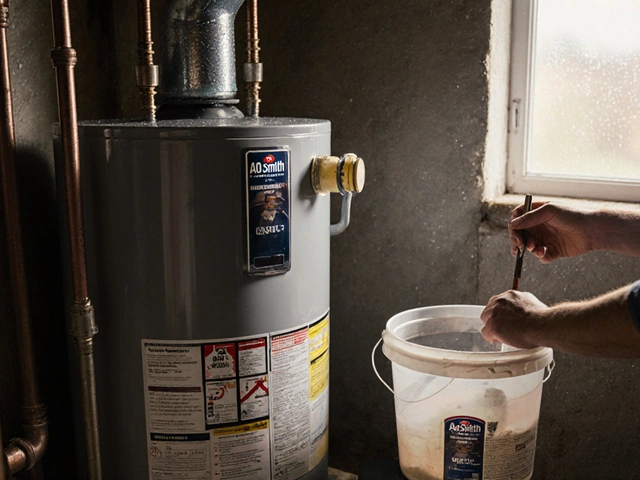Got a noisy dishwasher, a fridge that struggles to stay cold, or an oven that never heats up? Before you call a repair service, ask yourself if it’s worth fixing or if it’s time for a fresh unit. Knowing the signs that an appliance has reached the end of its useful life can save you money and hassle.
Most appliances have a typical lifespan – around 10‑15 years for a fridge, 8‑12 for a washing machine, and 5‑10 for a dishwasher. When an item is older than that, repair costs often start to climb. If a single repair costs more than half the price of a new model, replacement is the smarter move.
Other red flags include repeated breakdowns, parts that are no longer sold, and energy‑inefficient performance. An old fridge that uses a lot of power not only bumps up your bill but also adds strain to the grid. Swapping it for an Energy Star model can pay for itself in a few years.
Safety is another factor. A cracked oven door, frayed power cord, or a heater that sparks is a fire risk. In those cases, even a cheap fix isn’t worth the danger – replace it right away.
If you’ve decided to replace, you don’t always need a pro. Many appliances are designed for easy swapping. Here’s a quick run‑through for the most common jobs.
Dishwasher: Turn off the water supply, disconnect the power cord, and remove the mounting brackets. Slide the old unit out, slide the new one in, and re‑attach the brackets. Hook up the water hose and test a short cycle.
Electric Hob Element: Unplug the hob, remove the burner caps, and locate the faulty element. Unscrew the connector, pull the old element out, and snap the new one in place. Re‑assemble and test each burner.
Oven Element: Safety first – disconnect the oven from power. Remove the back panel, locate the heating element, and unscrew the mounting bolts. Replace with the new element, tighten the bolts, and re‑fit the panel.
For all DIY swaps, keep a photo of the wiring before you disconnect anything. That way you can match connections quickly when you reinstall. Also, have a basic toolkit ready: screwdrivers, adjustable wrench, pliers, and a flashlight.
When you buy a replacement, match the size, voltage, and connection type. A 220‑volt dryer won’t fit a 110‑volt outlet, and a 60‑cm fridge won’t slip into a 55‑cm cavity. Double‑check the model numbers and read the specifications.
Finally, recycle the old unit responsibly. Many local councils offer bulk‑waste collection, and many retailers will take back the old appliance when they deliver the new one. That keeps hazardous refrigerants out of the landfill.
In short, keep an eye on age, repair costs, and efficiency. When the numbers tip toward replacement, yourself can handle many swaps with a few tools and a bit of patience. If a job feels beyond your comfort level, a qualified technician will get it done safely and fast – and that’s exactly what Bognor Regis Appliance Repair Experts are here for.

Thinking about ditching your gas appliances? This article breaks down the real pros and cons of keeping or replacing things like your gas stove, water heater, or furnace. Learn how safety, repair costs, and future-proofing your home play into this decision. There are lots of myths out there and we’ll sort out the facts. You'll also pick up practical tips on making the best choice for your budget and home. Let's cut through the noise and find out what really matters for your gas appliances.

AO Smith, Bradford White, and Rheem are the most durable water heater brands, often lasting 12-15 years with proper maintenance. Learn what really affects lifespan and how to make your heater last longer.

Stuck between fixing or swapping your boiler? Discover the real facts, costs, tips, and how to make the right call for your property, budget, and comfort.

Wondering how long your electric stove is supposed to last? This article breaks down real-world numbers, explains what impacts the life of an electric stove, and gives you the know-how to make yours last longer. You’ll get practical advice on repairs versus replacement, and tips to avoid common pitfalls that cut appliance life short. Choosing the right upkeep now can save you money and headaches later. Perfect for homeowners who want their kitchen running smoothly for years.

Wondering whether plumbers can fix your boiler? This article breaks down exactly what plumbers do, where their work overlaps with heating engineers, and when you need a specialist. You’ll get practical advice for dealing with boiler issues, tips for finding the right tradesperson, and a look at why gas safety credentials matter so much. There’s even a checklist for what to ask before hiring someone for your boiler job. Skip the confusion and figure out who to call, fast.

Microwaves seem invincible until they suddenly stop working—usually right when you're hungry. This article tackles what actually breaks down most often in a microwave, from simple blown fuses to tricky magnetrons. You'll learn the telltale signs for each failure, why these things wear out, and how to figure out if it’s something you can fix yourself. Plus, there are practical tips on keeping your microwave running smoother for longer. Perfect for anyone tired of cold leftovers and expensive repair bills.